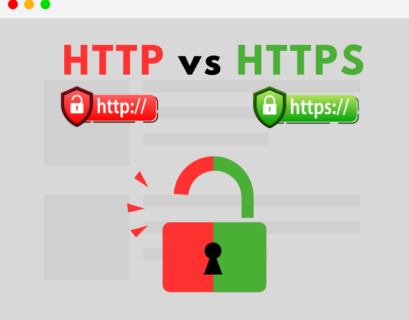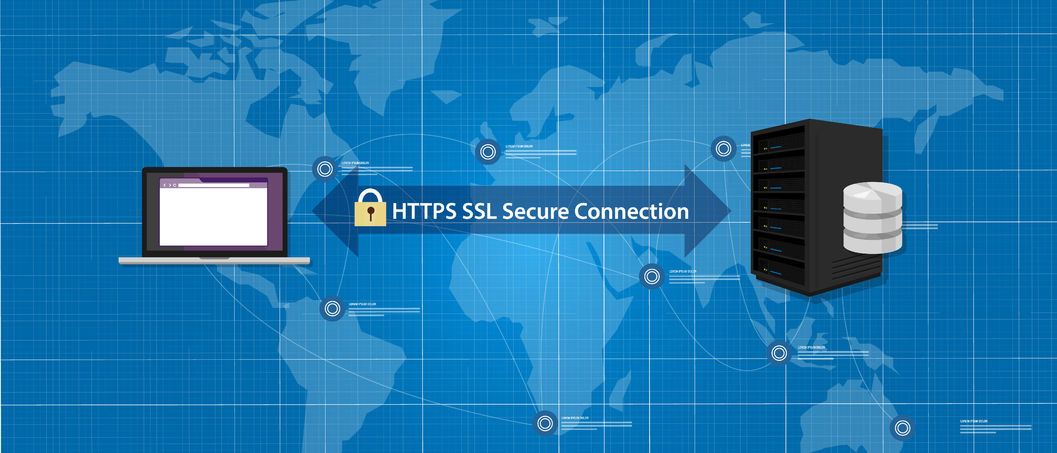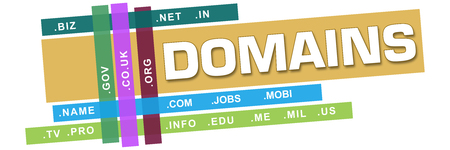SSL certificate monitoring is like a guardian that keeps our online interactions safe and secure. SSL certificates play a crucial role in authenticating websites and encrypting data, but they can be even more effective if they’re properly monitored. In this article, we’ll explore the importance of SSL certificates and how monitoring them prevents security breaches, ensures compliance, and maintains user trust. In today’s digital age, trust and security are essential, and SSL certificate monitoring becomes the ultimate shield for organizations looking to fortify their online presence.
Table of Contents
Understanding SSL Certificates
SSL, or Secure Socket Layer, is a cryptographic protocol that provides secure communication over a computer network. SSL certificates are digital certificates that authenticate the identity of a website and encrypt the data transmitted between the user’s browser and the website’s server. They prevent unauthorized access and safeguard sensitive information such as login credentials, personal details, and financial transactions.
SSL certificates employ public key infrastructure (PKI) to authenticate the identity of the server and establish a secure channel for data exchange. When a website is secured with SSL, users can trust that their data is protected from theft and manipulation.
SSL certificates serve multiple purposes, including authentication, data integrity, and encryption. Authentication ensures that users are connecting to the intended website, while data integrity prevents information from being modified during transmission. Encryption, the primary function of SSL certificates, secures the data by converting it into a code that can only be decrypted with the corresponding decryption key.
What is SSL Certificate Monitoring?
SSL certificate monitoring is the proactive process of examining the status, validity and reliability of SSL certificates. As certificates have expiration dates, monitoring ensures that these certificates remain valid and do not expire, thereby preventing potential security vulnerabilities. Monitoring SSL certificates is essential to avoid security breaches, maintain trust with users, and comply with industry regulations.
The process involves regular checks that are necessary to verify that a server’s SSL certificate is properly installed and operational for a specific hostname. There are customization options available that allow the user to set the hostname, port, and timeout for the check.
Experience Industry-Leading DNS Speed with ClouDNS!
Ready for ultra-fast DNS service? Click to register and see the difference!
How does SSL certificate monitoring work?
SSL certificate monitoring involves regularly checking and verifying the status of SSL/TLS certificates installed on a server. The process typically includes the following steps:
- Hostname Verification: The monitoring system sends a request to the server, specifying a hostname. This is usually the domain name for which the SSL certificate is issued.
- SSL Handshake: The server responds by presenting its SSL certificate during the SSL handshake process. This certificate contains information about the certificate issuer, the domain(s) it is valid for, and its expiration date.
- Certificate Information Extraction: The monitoring system extracts information from the SSL certificate, such as the hostname for which the certificate is valid, the certificate issuer, and the expiration date.
- Comparison: The extracted information is compared against the expected values. If the hostname specified in the monitoring check matches one of the hostnames listed in the SSL certificate and the certificate is still valid, the check is marked as UP. If the hostname is not found or the certificate is expired, the check is marked as DOWN.
- Alerting: If the SSL certificate check determines that there is an issue, such as an expired certificate or mismatched hostname, an alert is triggered. This alert notifies administrators, allowing them to take corrective actions, such as renewing the certificate or fixing configuration issues.
Benefits of SSL certificate monitoring
SSL certificate monitoring offers several benefits to ensure the security and proper functioning of a website or online service. Here are some key advantages:
- Security Assurance: SSL (Secure Sockets Layer) certificates are crucial for encrypting data transmitted between a user’s browser and the website’s server. Monitoring ensures that the encryption remains untouched and that sensitive information is protected.
- Early Detection of Expired Certificates: SSL monitoring helps promptly identify and address expired certificates. Expired certificates can expose a website to security vulnerabilities and may result in browsers displaying security warnings to users.
- Avoidance of Downtime: Monitoring ensures that administrators are alerted before the expiration of the certificate. It allows them to renew or replace certificates before they expire, preventing potential downtime and disruptions to website services.
- Maintaining User Trust: Regular checks help ensure that SSL certificates are compatible with the latest browser updates and industry standards. This compatibility is crucial for maintaining user trust, as browsers may block access to websites with outdated or insecure certificates.
- Regulatory Compliance: Many industries and regions have specific regulatory requirements regarding the use of SSL certificates for securing online transactions and protecting user data. Monitoring helps ensure compliance with these regulations.
- Optimal Configuration: Monitoring SSL certificates can help identify and address configuration issues, ensuring that the certificates are properly set up for optimal performance and security.
- Notification and Alerts: Monitoring tools can provide real-time alerts when issues are detected. That way, they allow administrators to take quick action to address any security concerns.
- Cost Savings: Proactive monitoring can help avoid emergency situations that may require costly and immediate solutions. By addressing issues before they escalate, organizations can save both time and resources.
- Brand Reputation: A website that consistently maintains secure SSL certificates contributes to a positive brand image. Monitoring helps ensure that users can trust the security of the website, boosting trust in online interactions.
- Ease of Management: Monitoring tools often provide centralized management, making it easier for administrators to oversee and manage SSL certificates across multiple domains and servers.
Consequences of Neglecting SSL Certificate Monitoring
Neglecting SSL certificate monitoring can have several negative consequences for both the security and performance of a website or online service. Here are some of them:
- Security Breaches and Data Compromise: Not monitoring SSL certificates can leave organizations vulnerable to security breaches. Attackers can exploit expired or compromised certificates to intercept sensitive data transmitted between users and servers. This could lead to the compromise of login credentials, financial information, and other sensitive data, resulting in severe consequences for both businesses and their users.
- Loss of Customer Trust and Reputation Damage: In the digital age, trust is paramount for online businesses. Users expect their data to be handled securely, and any safety gaps can destroy trust quickly. A security incident resulting from the neglect of SSL certificate monitoring can lead to a loss of customer trust and damage a company’s reputation. Rebuilding trust once it is lost can be a challenging and time-consuming process.
- Regulatory Compliance Issues: Many industries and regions have specific regulations and compliance requirements regarding the protection of sensitive information. Neglecting SSL certificate monitoring can lead to non-compliance with these regulations, exposing organizations to legal consequences, fines, and other penalties. Regular monitoring and following industry standards ensure that organizations stay in compliance with data protection regulations.
Why is SSL Certificate Monitoring important?
SSL certificate monitoring is vital for maintaining a secure, reliable, and trustworthy online presence. SSL certificates protect sensitive data by encrypting the communication between users and servers, but their effectiveness relies on proper upkeep. Expired or misconfigured certificates can lead to browser security warnings, disrupting user access and damaging trust.
Failing to monitor SSL certificates can expose websites to cyberattacks like data interception, phishing, and man-in-the-middle attacks. It can also lead to non-compliance with regulatory standards, resulting in penalties and reputational harm.
Monitoring ensures certificates remain valid, configurations are correct, and potential issues are addressed before they escalate. Proactive alerts for expirations or vulnerabilities help prevent downtime, breaches, and loss of user trust. Ultimately, SSL certificate monitoring protects your online presence, maintains customer confidence, and upholds compliance, making it a cornerstone of modern cybersecurity practices.
Preventing Phishing Attacks with SSL Certificate Monitoring
Phishing attacks are one of the most common cyber threats, often exploiting weak or expired SSL certificates to trick users. Cybercriminals can impersonate legitimate websites by using expired or misconfigured SSL certificates, tricking users into sharing sensitive information like login credentials, credit card details, and personal data.
SSL certificate monitoring plays a crucial role in defending against such tactics. By proactively monitoring SSL certificates, organizations can identify and address vulnerabilities before attackers exploit them. Monitoring ensures that certificates remain valid, correctly configured, and properly installed, leaving no room for malicious actors to misuse them.
Maintaining up-to-date and properly configured SSL certificates not only prevents phishing attempts but also enhances user trust. Visitors are more likely to trust a website that consistently displays the secure padlock icon in their browser. By incorporating SSL certificate monitoring into their cybersecurity strategy, organizations can significantly reduce the risk of phishing attacks and protect their users from fraud.
Best Practices for SSL Certificate Monitoring
Implementing effective SSL certificate monitoring involves following the best practices that enhance the overall security posture of an organization. Here are some key recommendations:
- Automated Monitoring: Utilize automated monitoring tools to scan and examine SSL certificates regularly. Automation ensures that organizations receive real-time alerts for potential issues, reducing the likelihood of oversights or manual errors.
- Regular Audits and Assessments: Conduct regular audits and assessments of SSL certificates to identify vulnerabilities, misconfigurations, or any other security concerns. This proactive approach enables organizations to address issues before malicious actors exploit them.
- Centralized Management: Implement a centralized management system for SSL certificates to streamline tracking and management. This is particularly important for large enterprises with many certificates across different departments and services.
- Documentation and Inventory: Maintain a comprehensive inventory of all SSL certificates within the organization, including details such as issuance date, expiration date, owner, and purpose. Accurate documentation helps efficient management and reduces the risk of missing important certificates.
- Continuous Education and Training: Keep IT and security personnel updated on the latest developments in SSL/TLS technology, vulnerabilities, and best practices. Continuous education ensures the team is well-equipped to handle threats and challenges regarding cybersecurity.
Conclusion
SSL certificate monitoring is essential for cybersecurity, ensuring the authentication and encryption of online data. It prevents security breaches, maintains user trust, and ensures compliance. Neglecting monitoring can lead to severe consequences such as breaches, loss of trust, and compliance issues. To enhance security, organizations should follow best practices, including automated monitoring and regular audits. Monitoring is a non-negotiable strategy for strengthening online presence and maintaining user trust.






